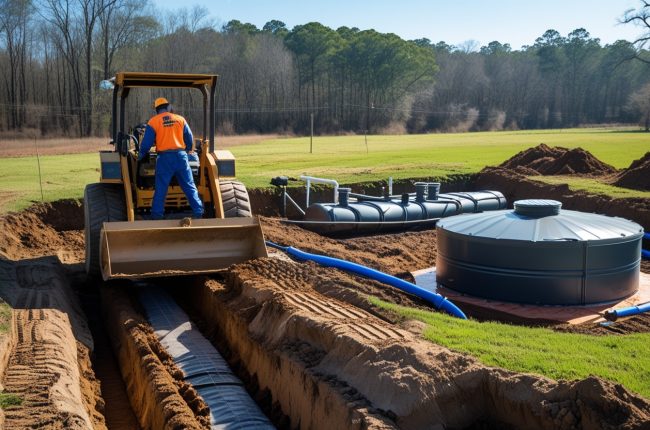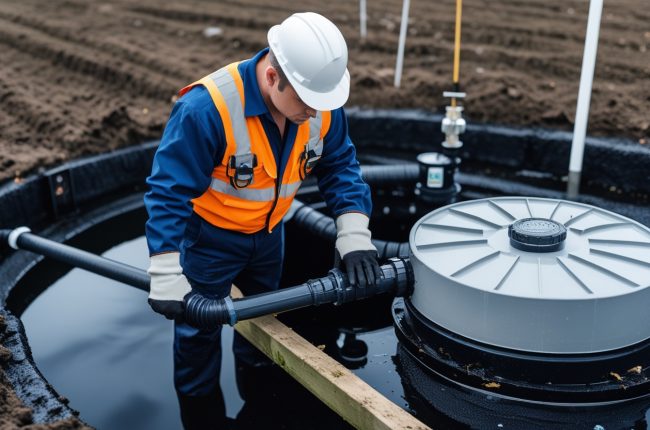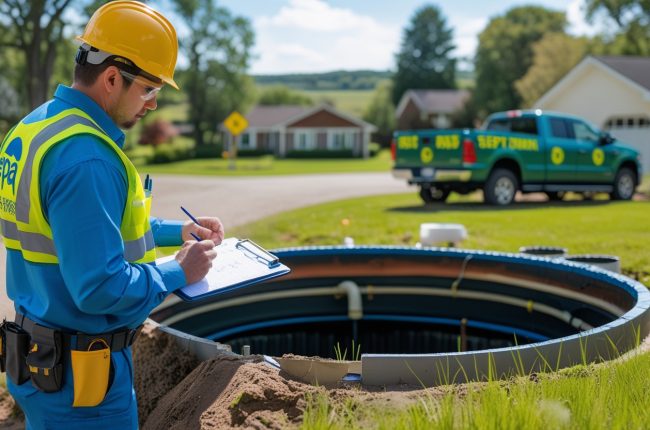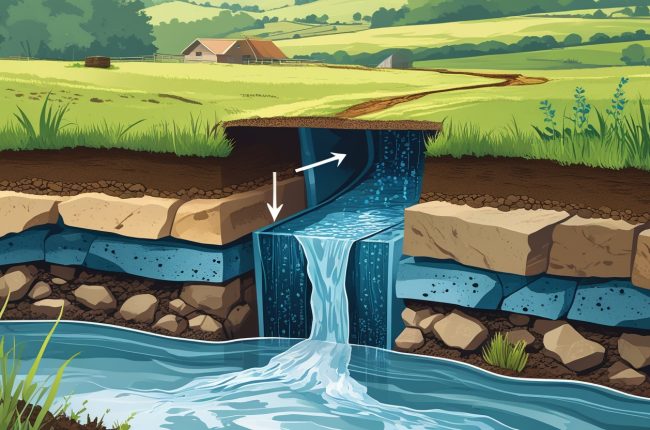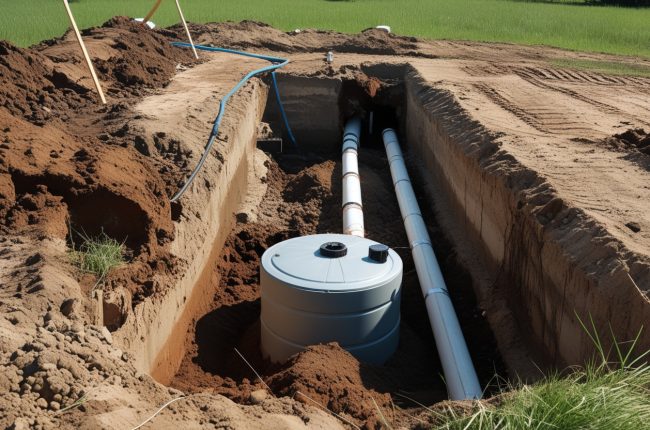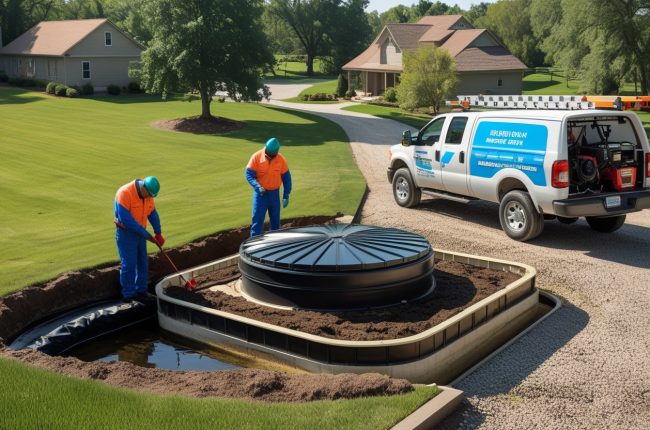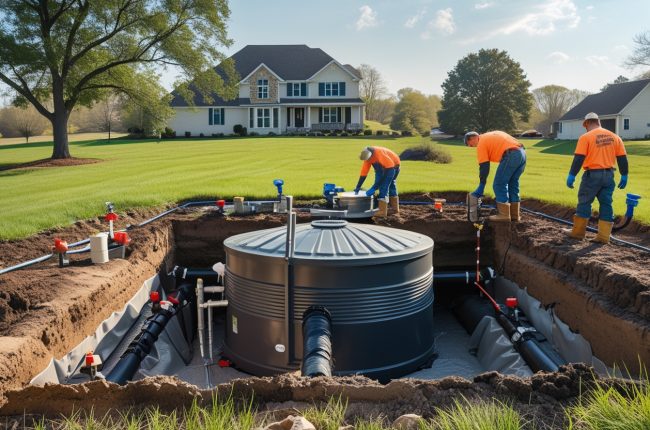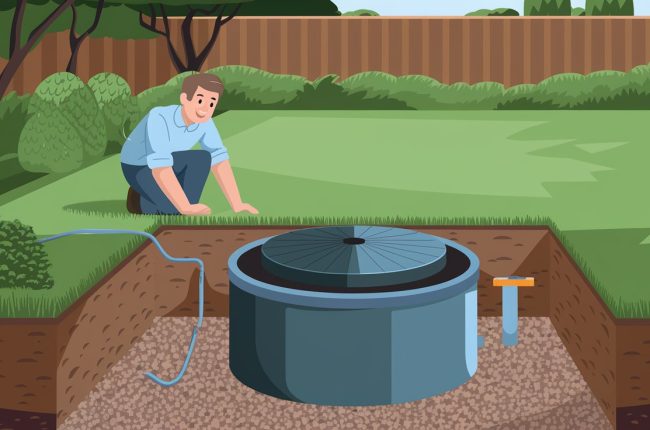Category: Septic System Regulations
Septic system regulations ensure proper design, installation, and maintenance to protect public health and the environment. They vary by region and cover permits, inspections, and effluent treatment standards.
Understanding Kentucky septic tank laws is essential for homeowners, contractors, and real estate buyers. The state enforces strict regulations to ensure proper septic system installation, maintenance, and environmental protection. This guide covers septic permits, installation…
Septic systems are essential for wastewater management in rural areas, but they must meet strict legal standards. Vermont septic system regulations ensure environmental protection and public health. Understanding these rules helps homeowners avoid fines and…
Can I install my own septic tank in Alabama? If you’re considering a DIY installation, you need to understand state regulations, permit requirements, costs, and potential challenges. Alabama has strict rules to ensure septic systems…
New Nevada septic system regulations impact homeowners, contractors, and developers. Understanding these changes is crucial to avoid fines and ensure proper wastewater management. This guide explains the latest requirements, costs, and compliance steps. Overview of…
Understanding Hawaii septic tank regulations is crucial for homeowners and businesses. These rules ensure wastewater is safely treated, protecting public health and the environment. Failing to comply can lead to fines, property damage, and water…
A Mississippi septic tank license is essential for professionals installing, maintaining, or pumping septic systems. Homeowners planning to install their own systems must also follow strict regulations. Understanding licensing requirements helps avoid legal issues and…
If you want to install septic systems in Maryland, you must have a Maryland septic installer license. The state regulates septic system installations to protect public health and the environment. Licensed installers ensure septic systems…
If you own a home with a septic system in New Mexico, it’s essential to understand the regulations that govern installation, maintenance, and compliance. These rules are designed to protect public health and prevent environmental…
Gray water, the wastewater from sinks, showers, and washing machines, is often reused for irrigation and other non-potable purposes. However, improper disposal can pose environmental and health risks. With new gray water disposal laws Missouri…
If you’re looking to enter Oregon’s growing onsite wastewater industry, getting your Oregon septic installer license is the first step. This license allows you to legally install, repair, and sometimes maintain septic systems throughout the…
If you’re planning to build or renovate a home in a rural part of the state, understanding Mississippi septic tank requirements is crucial. The state has specific regulations that govern the design, placement, installation, and…
Septic tank regulations are constantly evolving to protect public health and the environment. Homeowners and businesses must stay informed to avoid fines and costly system upgrades. Understanding what are the new regulations for septic tanks…
Septic systems are essential for wastewater management in rural areas, but they must meet Oklahoma septic tank regulations to ensure public health and environmental safety. Homeowners and businesses must comply with local laws to avoid…
An illegal septic system can lead to serious financial and legal consequences. Homeowners who install, modify, or operate septic systems without proper approval risk hefty fines, legal action, and mandatory repairs. These penalties vary by…
New Arkansas septic tank laws are changing how homeowners install, maintain, and inspect their septic systems. These regulations ensure better wastewater management, protecting public health and the environment. If you own property with a septic…
Understanding new Tennessee septic tank laws is crucial for homeowners, builders, and real estate professionals. Recent changes impact installation, maintenance, and compliance, making it essential to stay informed. This guide breaks down the latest regulations,…
Septic systems play a vital role in managing wastewater for homes and businesses, especially in areas without access to centralized sewer systems. However, septic regulations by state vary significantly across the United States, making it…
Soil testing for septic installation is a critical first step in ensuring your septic system functions efficiently and meets local health regulations. Whether you’re building a new home or replacing an aging system, understanding your…
When it comes to zoning laws and septic systems, homeowners often overlook just how connected the two really are. But zoning regulations can significantly impact whether you can install, repair, or expand a septic system…
In Pennsylvania, septic systems play a vital role in managing wastewater, particularly in rural areas where centralized sewer systems are unavailable. However, many homeowners may unknowingly operate illegal septic systems, which can lead to significant…





